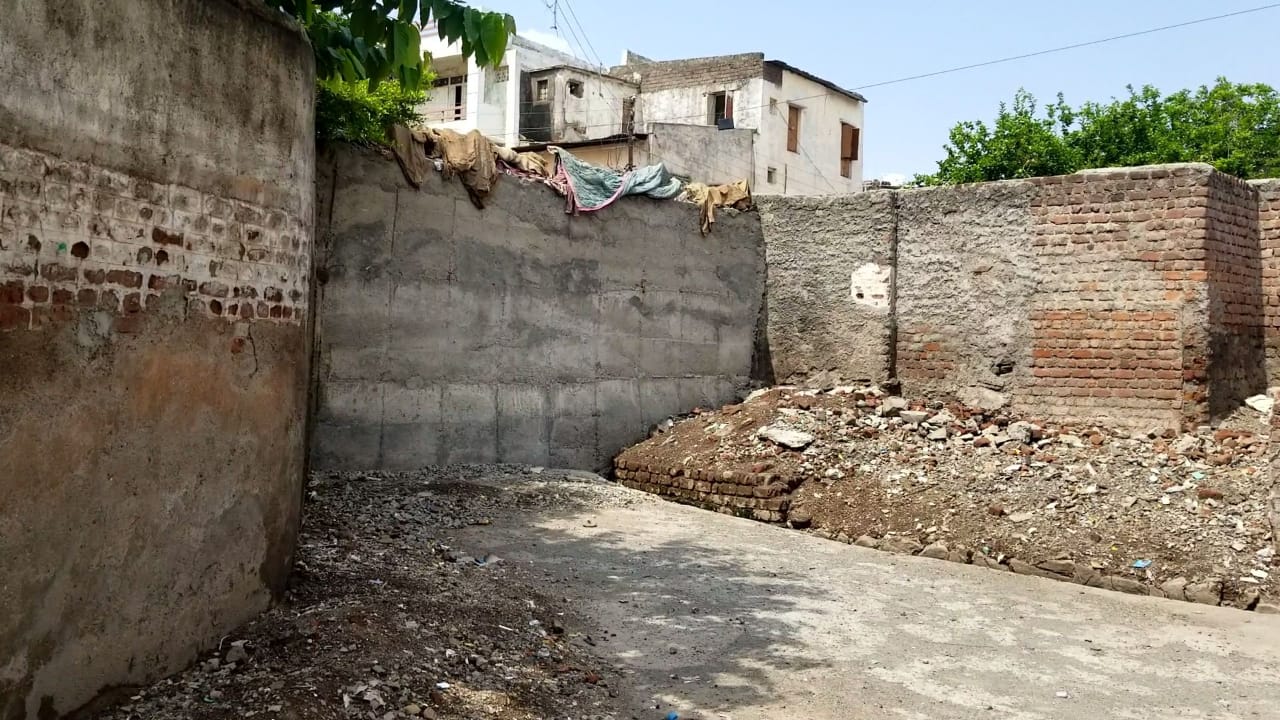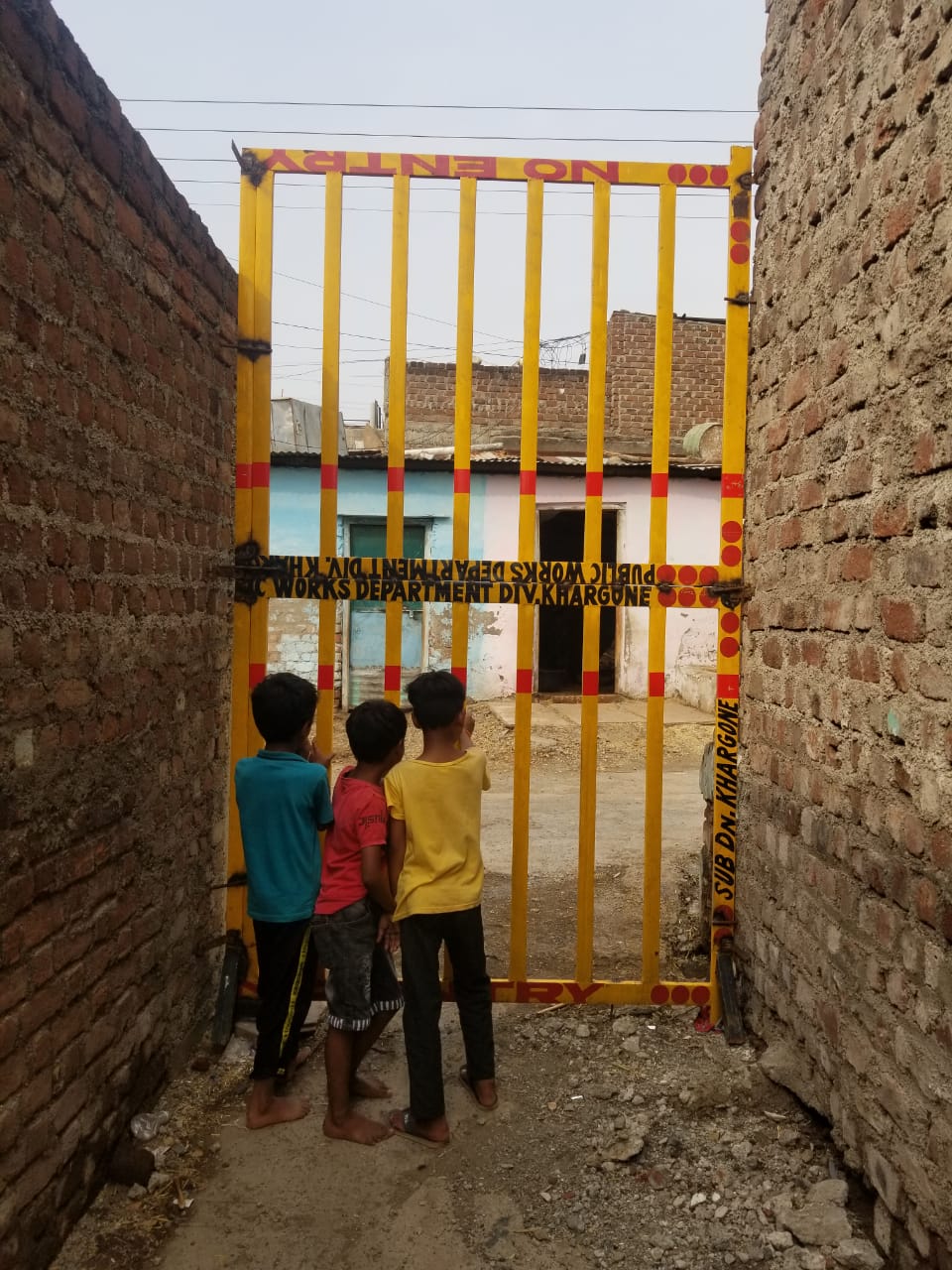‘We are living like prisoners’: Muslims from riot-hit Khargone decry construction of wall separating two communities

While the Khargone administration argues that ‘barricading’ will help maintain peace in the city, the local residents told TwoCircles.net that it has added to their woes.
Muhammad Raafi | TwoCircles.net
NEW DELHI — Two months after anti-Muslim violence-ravaged Madhya Pradesh’s Khargone city, Muslims from the city complained of ‘living like prisoners’. Locals told TwoCircles.net that the district administration has constructed a wall and at some places installed concrete barricades apparently to separate Hindu and Muslim neighbourhoods. The walls are one foot wide and over 10 feet high.
Anti-Muslim violence broke out in the area on April 13, the day of Ram Navami. Two months later, the city is quiet and slowly moving towards normalcy following an economic boycott of the Muslim traders.
https://twocircles.net/2022apr30/445739.html
While the Khargone administration argues that ‘barricading’ will help maintain peace in the city, the local residents told TwoCircles.net that it has added to their woes.
Abdul Rahman, a resident of Khaswadiwala Mohalla told TwoCircles.net that the administration has barricaded the neighbourhood with a 15-20 feet barricade making it impossible for the residents to use the road to the local market. Earlier, he said, it would take me two minutes to reach the market that is just behind Sarafa Bazar. “But now I have to travel around 1500 metres to reach the market. Children cannot even go to school. Elders cannot go to mosques.”
[caption id="attachment_446191" align="aligncenter" width="1280"] A barricade built by local admin in Khargone to separate two colonies. | Picture by arrangement[/caption]
A barricade built by local admin in Khargone to separate two colonies. | Picture by arrangement[/caption]
The administration maintains that the barricades have been installed after “a due approval” of the local residents. A senior administration officer of the Khargone district told TwoCircles.net that they met with the “respectable citizens” from both the communities and established the barricades. However, the residents said that the administration spoke “to their own people” without consulting the majority population in the area.
Rahman said the police had orally told the local elders that the barricades will remain till the people named in various cases after the anti-Muslim violence surrendered.
“There is no substantial reason for the barricades. The majority of the people are scared to even ask the question. If anyone by any means has asked the administration, they have been told to surrender the people named in various cases,” Rahman said.
[caption id="attachment_446192" align="aligncenter" width="960"] Children look through the barricade in Khargone area of Madhya Pradesh. | Picture by arrangement[/caption]
Children look through the barricade in Khargone area of Madhya Pradesh. | Picture by arrangement[/caption]
No room for dissent
Since the anti-Muslim violence in the district on April 10, 2022, the Muslims from the city said that those among the community who even think of “protesting against the injustices” and demanding rights are harassed and summoned to police stations.
There is absolutely no room for dissent, Rahman said. “Whoever raises his voice is summoned to the police station. Even those who express their dissent on social media are called for questioning and “framed in different cases”.
As per Rahman, Muslims have been living in the areas since 1947.
Another local Abdul Razzaq said that he, his father and grandfather have never witnessed such brazenness. “We have been living here since 1947. There have been instances of communal tensions but the issues would be resolved amicably after a few days. This is different.”
Razzaq claimed that on June 8, a group of Muslim boys from the area were abused when they were coming out of a mosque after prayers. “The video of the boys was released on social media explaining that they were abused for being Muslims and wearing a skullcap. A day later, those who had posted the video were called to a local police station,” he said.
Rahman said that they were asked not to share such content as it vitiates the atmosphere and they shall be booked under stringent laws in future. “We were made to delete the video later.”
A local police officer told TwoCircles.net that the boys were not “abused” for being Muslim. “There was some fight between two groups,” he said. To a question about summoning the boys who shared the video on social media, he said, “they were spreading concocted stories.”
Economic boycott of Muslims
Days after the anti-Muslim violence in the city, there were calls for a boycott against Muslims. On April 25, videos went viral on social media in which a man could be heard asking Hindus to “give a befitting reply” to those who hurled stones at a Ram Navami procession in the Khargone. On a loudspeaker mounted on a truck, a man who cannot be seen in the video urged women not to “buy things from their shops."
https://twitter.com/vishnukant_7/status/1518804628279750656?s=20&t=nskQ02nJC5IOj2c2w2c8kg
Rameez Ahmad, a political activist and a resident of Khargone said that there were apprehensions among the Muslim community that the boycott calls will have long-term implications.
“What we feared has happened. Muslims are being forced to vacate shops owned by Hindus,” Ahmad said. “There is a palpable tension. Posters are pasted on Hindu shops threatening Muslims.”
Shakeel-ur-Rahman, a local trader said that since the boycott calls the Muslim traders’ business has taken a severe hit. “The business has reduced by almost half. Hindus do not buy from Muslims,” he said.
What next?
Saleem Khan (name changed), a political activist said that since the violence on April 10, the leaders of the Muslim community have attempted to reach out. “Unfortunately, there isn’t a positive response from the other side,” he said.
“Whatever happened, happened. Nobody is playing a role to calm the tempers. We don’t see anyone from the other community doing that,” Khan said.
Locals complained that even the political parties have failed to bridge the gap between the communities. “They are treading a cautious path as no party wants to agitate the majority Hindu community,” Razzaq said, adding, “that the two major political parties, the ruling Bharatiya Janata Party (BJP) and Congress haven’t given tickets to any Muslim candidate for the upcoming local body polls yet.”
“Although there are rumours that Congress will give tickets to a few Muslim candidates but the party has not officially announced it,” he said. There are 33 wards in Khargone city among which around 12 are Muslim-dominated.
Khan believes that all the differences could be resolved when both communities sit together. Barricading the area keeps the wounds alive and it won’t resolve anything, he said. “We want to forget that,” he said. Khan claims to have spoken to the people from the Hindu community. “The members of the (Hindu) community were not willing to even talk about barricades,” he added.
Muhammad Raafi is a journalist based in New Delhi. He covers politics and human rights. He tweets at @MohammadRaafi
